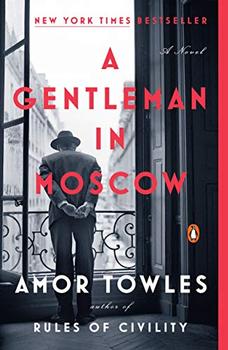Summary | Excerpt | Reading Guide | Reviews | Beyond the book | Read-Alikes | Genres & Themes | Author Bio

A compact masterpiece dedicated to the Russian composer Dmitri Shostakovich: Julian Barnes's first novel since his best-selling, Man Booker Prize–winning The Sense of an Ending
In 1936, Shostakovich, just thirty, fears for his livelihood and his life. Stalin, hitherto a distant figure, has taken a sudden interest in his work and denounced his latest opera. Now, certain he will be exiled to Siberia (or, more likely, executed on the spot), Shostakovich reflects on his predicament, his personal history, his parents, various women and wives, his children - and all who are still alive themselves hang in the balance of his fate.
And though a stroke of luck prevents him from becoming yet another casualty of the Great Terror, for decades to come he will be held fast under the thumb of despotism: made to represent Soviet values at a cultural conference in New York City, forced into joining the Party and compelled, constantly, to weigh appeasing those in power against the integrity of his music.
Barnes elegantly guides us through the trajectory of Shostakovich's career, at the same time illuminating the tumultuous evolution of the Soviet Union. The result is both a stunning portrait of a relentlessly fascinating man and a brilliant exploration of the meaning of art and its place in society.
Far from feeling cheated out of more biographical information or details of the man’s creative process, I felt very much in touch with Shostakovich’s heart and his struggle to maintain some semblance of the standard of integrity he’d set for himself. Barnes lets us hover over the composer’s life, peep into his thoughts, and envision what life under tyranny is like for the creative mind of the genius. From youth to old age when, “his mind no longer skittered,” but, “limped carefully from one anxiety to the next,” Shostakovich became more alive than an account of the sum of his experiences...continued
Full Review
(671 words)
This review is available to non-members for a limited time. For full access,
become a member today.
(Reviewed by Donna Chavez).
 In Julian Barnes' The Noise of Time, Dmitri Shostakovich notes that under Stalin, "[Russians] would listen to [Stalin's] insane daily insistence that all was for the best in the best possible of worlds, that Paradise had been created, or would be created quite soon…when a few more saboteurs had been shot. That happier times would come." He makes tongue-in-cheek references to Stalin as The Helmsman and The Great Leader who has been imbued with supernatural powers – and whose Cult of Personality is far-reaching and incapable of error.
In Julian Barnes' The Noise of Time, Dmitri Shostakovich notes that under Stalin, "[Russians] would listen to [Stalin's] insane daily insistence that all was for the best in the best possible of worlds, that Paradise had been created, or would be created quite soon…when a few more saboteurs had been shot. That happier times would come." He makes tongue-in-cheek references to Stalin as The Helmsman and The Great Leader who has been imbued with supernatural powers – and whose Cult of Personality is far-reaching and incapable of error.
According to Wikipedia, "A cult of personality arises when an individual uses mass media, propaganda, or other methods to create an idealized, heroic, and at times worshipful image, often ...
This "beyond the book" feature is available to non-members for a limited time. Join today for full access.

If you liked The Noise of Time, try these:

by Amor Towles
Published 2019
From the New York Times bestselling author of Rules of Civility - a transporting novel about a man who is ordered to spend the rest of his life inside a luxury hotel.

by Sofi Oksanen
Published 2016
From the acclaimed author of Purge ("a stirring and humane work of art" —The New Republic) comes a riveting, chillingly relevant new novel of occupation, resistance, and collaboration in Eastern Europe.
If we did all the things we are capable of, we would literally astound ourselves
Click Here to find out who said this, as well as discovering other famous literary quotes!